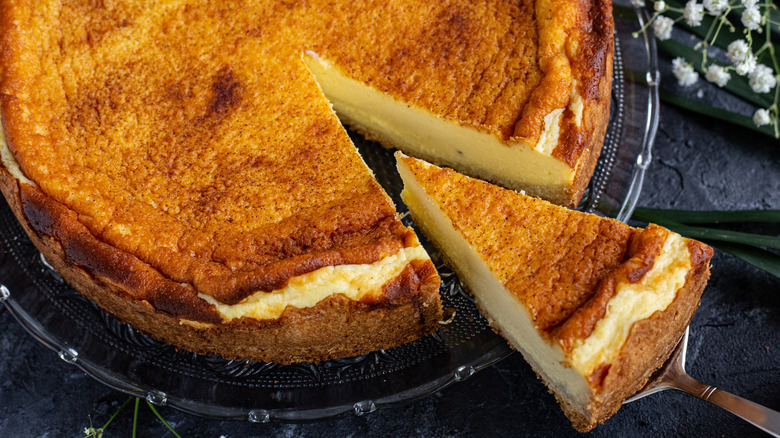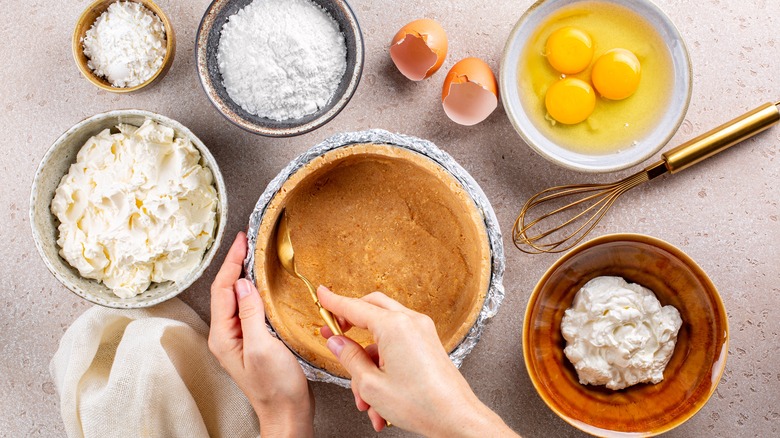No Bake Vs Baked Cheesecake: What Makes Them Different, Besides The Obvious?
Cheesecake can be difficult to classify. While the dessert shares many similarities with other beloved dishes, cheesecake is not technically a cake or a pie. Even the decadent treat itself has multiple methods of preparation that could warrant two different classifications: baked and no-bake. Some recipes require the dessert mixture to be thoroughly baked to be edible, while others simply call for a good mix and a trip to the refrigerator before it's ready to be served.
When deciding between making a baked or no-bake cheesecake, there are a few factors to keep in mind, such as taste and texture. A baked cheesecake provides a dense, spongy consistency that brings out a more well-rounded flavor, while no-bake cheesecakes tend to be lighter with a whipped texture.
The ingredients you have on hand might also influence your choice of recipe. Baked cheesecake recipes typically call for eggs, which act as a binding agent to create its distinct firm consistency. Any recipe that includes eggs must be baked before it can be enjoyed, as consuming raw eggs can result in serious illness. In contrast, no-bake cheesecakes often rely on gelatin or whipped cream for structure, both of which do not require baking.
A baked cheesecake calls for more ingredients
The decision to bake or not bake your cheesecake might ultimately come down to how much time you have. Baked cheesecakes often involve complex methods, such as placing the dish in a water bath to prevent cracking and ensure even cooking. A traditional New York-style cheesecake, for example, requires approximately an hour of baking, followed by an additional hour of cooling in the oven with the heat turned off. Then it needs to chill in the fridge for several hours to reach the desired consistency. No-bake options are almost always easier to prepare, but take longer to set in the fridge. Because no-bake recipes often use temperamental ingredients like gelatin or whipped cream, it is recommended to leave your no-bake cheesecake in the fridge overnight to ensure it sets properly.
Baked cheesecakes also tend to maintain their texture and structure longer than no-bake options, lasting up to seven days in the fridge. If you are preparing a cheesecake ahead of time, a baked recipe might be more reliable, as no-bake options are best enjoyed within 36 hours to ensure peak freshness. Time constraints aside, cheesecakes can still offer seriously complex and delicious flavors, even when you opt for Cool Whip or gelatin over eggs and a water bath. Our recipes for no-bake Oreo cheesecake and no-bake persimmon and goat cheese cheesecake prove just how delightful a cheesecake can be without ever seeing the inside of an oven.


